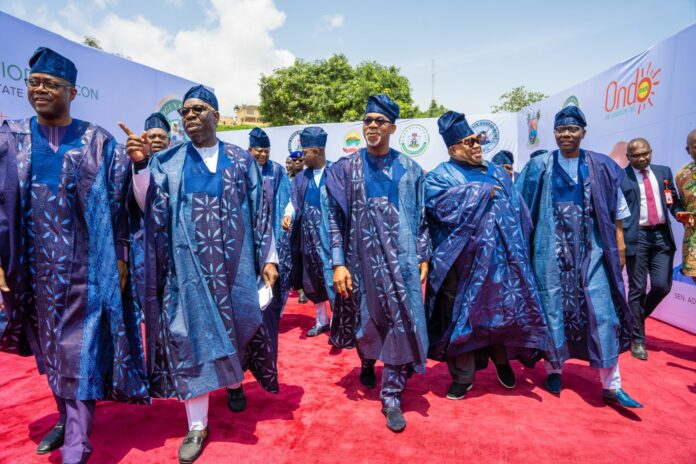It’s not every day that the world watches as a presidential jet is seized over a financial dispute. Yet, that’s exactly what happened recently with Nigeria and Zhongshan Fucheng Industrial Investment Co. Limited, a Chinese firm embroiled in a legal tug-of-war with the Nigerian government.
The seizure of an Airbus A330—one of Nigeria’s prized presidential jets—by Zhongshan was more than just a headline; it was a stark reminder of the price of foolishness and the havoc wreaked by contract breaches in Nigeria’s corridors of power.
The backstory here is as tangled as it is troubling. Zhongshan Fucheng, a company contracted back in 2007 to manage a free trade zone in Ogun State, had its agreement scrapped in 2015 after only a perimeter fence had been built.
Zhongshan, feeling wronged, pursued a lengthy legal battle that culminated in a significant arbitration award against Nigeria. The company claimed it was owed $74.5 million—a dispute that has now spiraled into an international saga involving presidential jets and court orders.
Let’s unpack this. The Nigerian government, through a string of leaders and bureaucratic layers, failed to manage the initial contract properly. The result? A company that feels justified in seizing assets, including those used for presidential purposes.
And it gets even more complicated. The Nigerian government’s attempt to shield its assets—like the presidential jets—from legal claims on the grounds of sovereign immunity only added fuel to the fire.
One might argue that the presidential jets, which were held in France as part of the legal dispute, are a symbol of national prestige and, importantly, diplomatic functions. It’s a classic example of how negligence in managing contracts and legal agreements can escalate into international embarrassments and operational hindrances.
In this case, Zhongshan’s decision to release the jet for President Bola Ahmed Tinubu’s scheduled meeting with French President Emmanuel Macron was a rare gesture of goodwill, but it shouldn’t be the exception. It highlights the precarious position Nigeria finds itself in due to its leaders’ past blunders.
Now, why is this a bigger issue than just another legal squabble? The broader implications are significant. The repeated pattern of contract breaches and administrative negligence is not just about money—it’s about governance and credibility.
When Nigerian leaders fail to uphold their contractual obligations, it damages the country’s reputation and undermines trust in its institutions. This kind of recklessness doesn’t just lead to financial losses; it can also deter foreign investment and hinder economic progress.
Bayo Onanuga, Special Adviser to the President on Information and Strategy, has already weighed in, asserting that the federal government is not contractually liable to Zhongshan and dismissing the claims as attempts by the company to exploit legal loopholes.
Onanuga’s remarks reflect the government’s frustration but also highlight the reactive rather than proactive stance often taken. Nigeria’s legal and administrative responses seem more about damage control than about preventing such situations from occurring in the first place.
This situation draws attention to a much larger issue: the behavior of Nigerian leaders and the systemic failures in governance that allow such scenarios to unfold. Contract breaches aren’t just isolated incidents; they’re indicative of a broader culture of impunity and mismanagement.
Leaders who fail to honor agreements and legal commitments aren’t just making a strategic error; they’re setting a precedent that undermines the entire system.
We’ve seen similar stories before—cases where Nigeria’s leaders have breached contracts or failed to manage agreements properly. These incidents are often marked by a lack of accountability and transparency, leading to protracted legal battles and diplomatic disputes. In many instances, the resolution of these issues comes too late to undo the damage already inflicted.
So, what needs to change? For Nigeria to break free from this cycle of foolishness and contract breaches, several key reforms are necessary:
To address Nigeria’s issues with contract breaches and legal disputes, it is crucial to establish a robust legal framework with clear, enforceable guidelines for managing contracts and disputes, ensuring adherence and appropriate consequences for breaches.
Leaders and officials must operate with greater transparency and accountability, fostering a culture of integrity and adherence to legal and ethical standards. Effective contract management systems should be implemented, including thorough vetting, diligent monitoring, and prompt resolution of issues.
While attracting foreign investment is essential for economic growth, Nigeria must safeguard against exploitative practices by securing clear, fair agreements with foreign entities. Additionally, maintaining strong diplomatic relations requires not only effective dispute management but also proactive diplomacy to avoid internal failures affecting international goodwill.
In the end, the price of foolishness is steep and multifaceted. It’s not just about the immediate financial costs or the inconvenience of having presidential jets seized; it’s about the long-term damage to Nigeria’s reputation and the erosion of trust in its leadership.
The way forward is to learn from these missteps and to build a system where contractual obligations are respected, and the rule of law is upheld—not just in theory but in practice.

